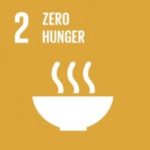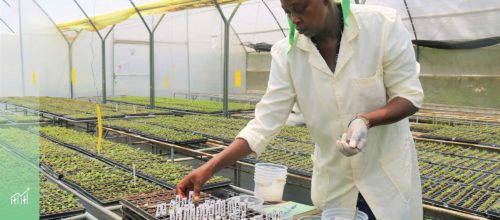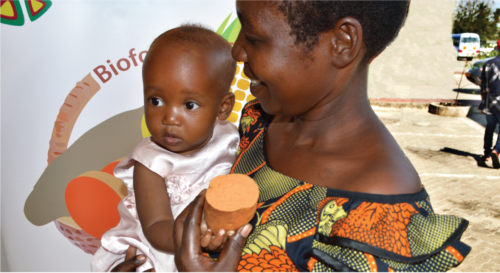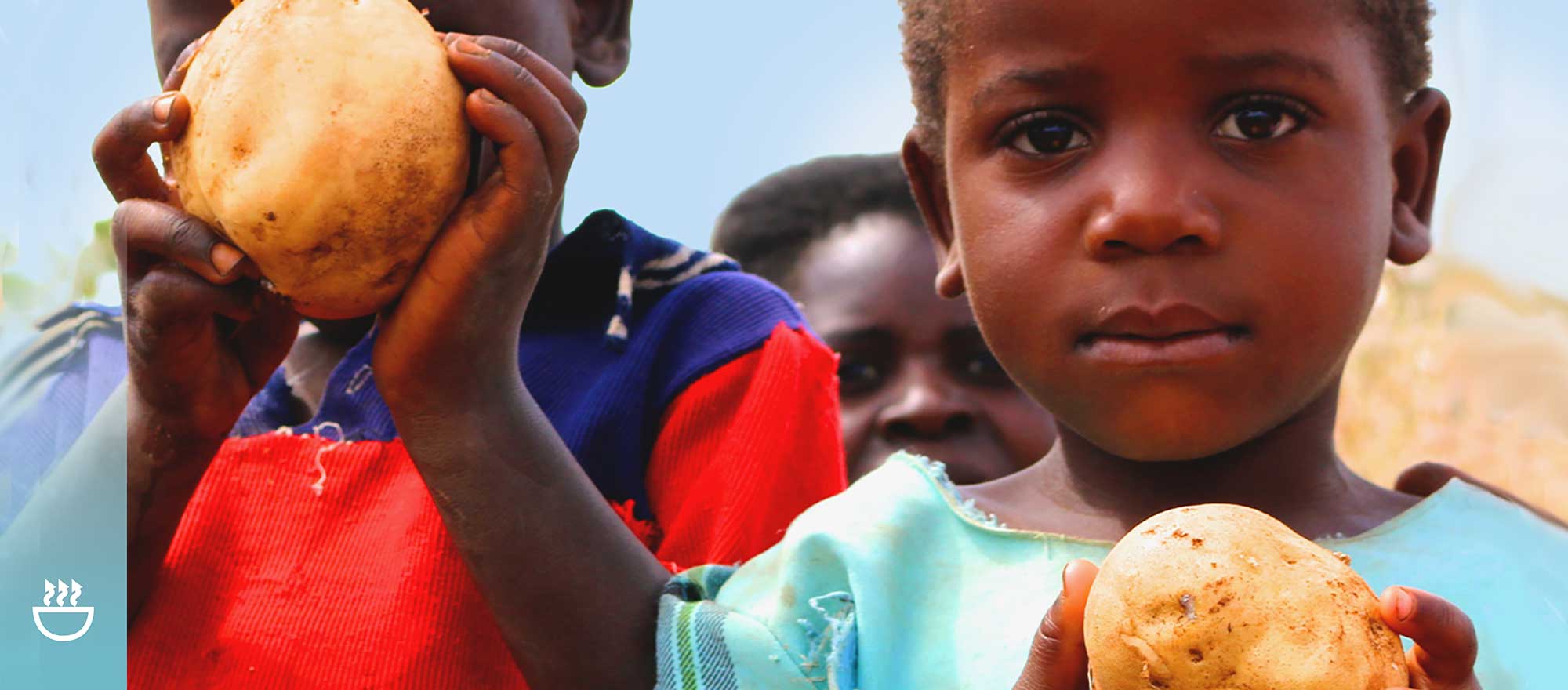
Malawi is an excellent example of the potential of potato and sweetpotato for bolstering food and nutrition security.
Multi-partner efforts have enabled approximately 1.6 million people in rural Malawi to improve their diets and farm resilience with the help of nutritious, high-yielding sweetpotato and potato varieties.
In 2018, Malawi’s Department of Agricultural Research Services released three orange-fleshed sweetpotato varieties — progenies of crosses between International Potato Center (CIP) breeding lines and local varieties. They brought the number of Malawian orange-fleshed varieties to nine, as part of a multi-pronged approach that combines breeding, seed systems to disseminate quality planting materials, agronomic training, and nutrition and diet diversity education.
Just 125g of orange-fleshed sweetpotato meets the daily vitamin A needs of a child under 5. Sweetpotato and potato also have high levels of vitamins C and B6 and other nutrients that make them good dietary Productivity gains in drought-prone Malawi complements to maize — Malawi’s principal staple crop. Their vitamin content and ability to produce plenty of calories per hectare relatively quickly make them ideal crops for combatting hunger and undernutrition.
Most new potato and sweetpotato varieties are also drought tolerant, vital in a country with up to eight months a year of dry weather. During an especially severe drought in 2016, approximately 6.5 million Malawians depended on food aid to make ends meet. The release and dissemination of climate-smart sweetpotato varieties by the government, CIP and partners has been a game changer for more than 300,000 farming households who had received planting material and agronomic training.
Loveness and Lighton Kalira and their four children in southern Malawi are one such household. The Kalira family, who traditionally grew maize and pigeon peas, added orange-fleshed sweetpotato several years ago. Despite an extended dry spell in 2017-18 wiping out their maize crop, their sweetpotato harvest boomed. The Kaliras sold their surplus sweetpotato when prices were high, earning enough to buy maize for the year and pay school fees for their youngest child. Orange-fleshed sweetpotato is now grown and sold across most of Malawi. It has contributed to a reduction in vitamin A deficiency in preschool-aged children from 59% in 2003 to 4% in 2016. Potato has long been an important food and cash crop in Malawi. To raise the traditionally low yields, more than 60,000 households have received starter packs of 40 seed tubers of improved potato varieties for multiplication and eventual sale.
Because those varieties are early maturing and high yielding, they produce edible tubers before most crops are ready to harvest and much more food per hectare than older varieties. Leonard Mideyo, in central Malawi, received his first packet of seed potatoes in 2015. He now dedicates most of his land to potato, which he eats and sells, earning enough to renovate his home and diversify his diet.
Government programs that produce disease-free planting material for more than 160 decentralized ‘multipliers’ facilitate the distribution of quality seed tubers or sweetpotato vine cuttings to farmers across the country. Through the provision of nutrition education and support to local businesses in developing new products, such as packaged chips and sweetpotato breads, more families have adopted improved varieties.
Strong multisectoral partnerships have enhanced food productivity, not only increasing the supply of nutritious potato and sweetpotato to approximately 8% of Malawi’s population, but also creating capacity to step up widescale adoption of improved varieties, with a goal of reaching 1 million households by 2028.
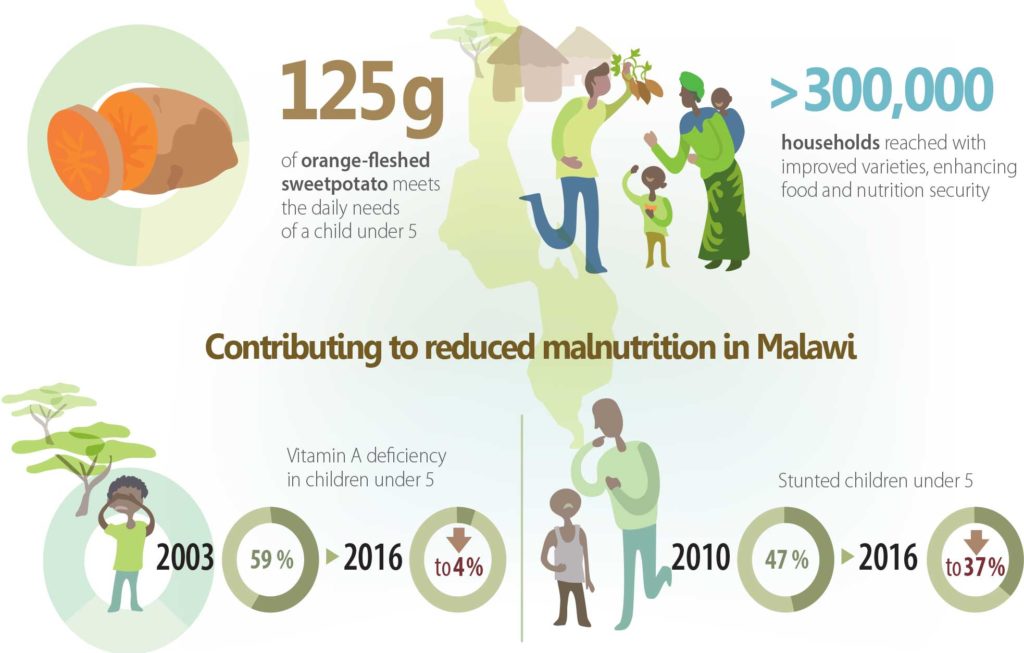
Funders: Alliance for a Green Revolution in Africa; Bill & Melinda Gates Foundation; Biotechnology and Biological Sciences Research Council; CGIAR System donors through the CGIAR Research Program on Roots, Tubers and Bananas; Department for International Development United Kingdom; European Union; Irish Aid; United States Agency for International Development.
Key partners: CADECOM; Concern Worldwide; Emanuel International; Malawi Red Cross; Ministry of Agriculture, Irrigation and Water Development Malawi; International Institute of Tropical Agriculture; Project Concern International; Root and Tuber Crops Development Trust; Save the Children; Tetra Tech; United Purpose; Universal Industries Ltd; We Effect; Welt Hunger Hilfe; Youth In Agriculture for Economic Development.
Associated CGIAR Research Program: Roots, Tubers and Bananas.

